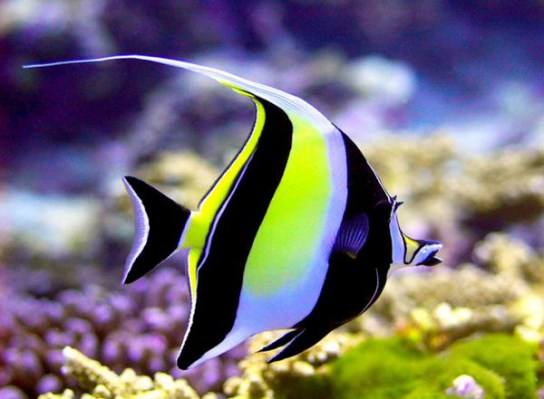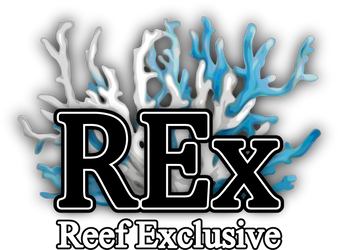
Moorish Idol (Zanclus Cornutus)
Size: only S,M
Species Name : Zanclus Cornutus
Care Level : Expert Only
Temperament : Peaceful
Color : Black, White, Yellow
Diet : Omnivore
Reef Compatible : With Caution
Water Conditions : 78-80° F, dKH 8-12, pH 8.1-8.4, sg 1.021-1.023
Max. Size : 7"
Origin : Fiji
Family : Zanclidae
Minimum Tank Size : 125 gallons
Zanclus Cornutus, or the Moorish Idol, is one of the most popular corals in the saltwater aquarium hobby. It is the only species in the family Zanclidae.
With distinctively compressed and disk-like bodies, Moorish idols stand out in contrasting bands of black, white, and yellow, which makes them attractive to aquarium keepers.
Due to its size, schooling nature, and need for swimming space, it requires a large aquarium of at least 125 gallons. As its beauty is most evident while swimming, giving it adequate room is well rewarded. Moorish Idols need a lot of rockwork to feel comfortable.
Moorish Idols are generally peaceful in nature but will resort to aggression when threatened. It is compatible with most fish and larger invertebrates, but should not be kept with any polyps or corals, which it will eat. Small invertebrates may be threatened as well. This species is very shy and docile, so one should be careful when keeping it with more aggressive fish. Potential choices for tankmates include chromis, carnivorous grazers such as wrasses, and cave-dwellers such as more peaceful dottybacks.
Zanclus Cornutus is an omnivore and will eat a variety of meaty foods, including fish and crustaceans. These fish eat exceptionally slowly and can be very selective feeders. It can therefore be problematic to provide it with a sufficient and varied diet, in an aquarium with other, faster feeding species. Live rock with large amounts of algae and sponges on which it can feed will help it acclimate. Then offer a varied diet of finely chopped meaty items, mysis shrimp, vitamin-enriched brine shrimp, Spirulina, and algae. It should be fed several times a day. If there are insufficient algae on the rocks, it is important to feed more frequently and supplement with algae rich food e.g. Spirulina.
Size: Small: 3" to 3-1/2"; Medium: 3-1/2" to 4-1/2"; Large: 4-1/2" to 5-1/2"
